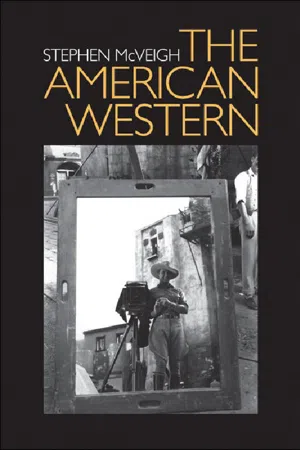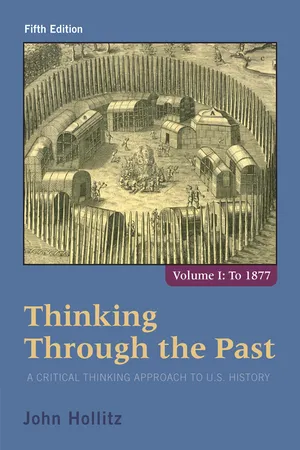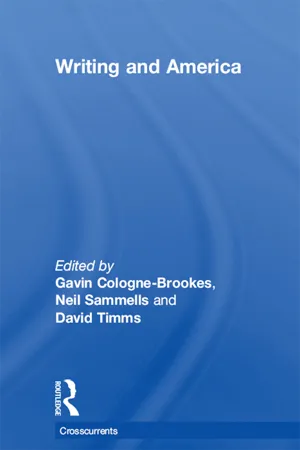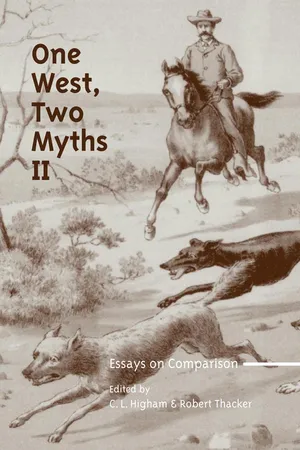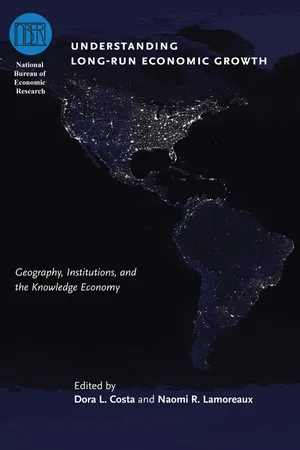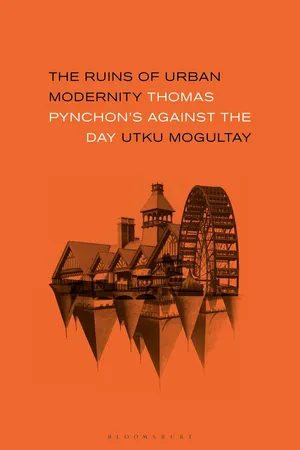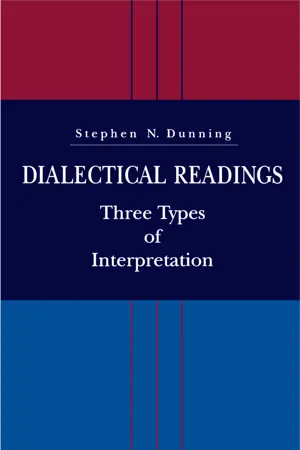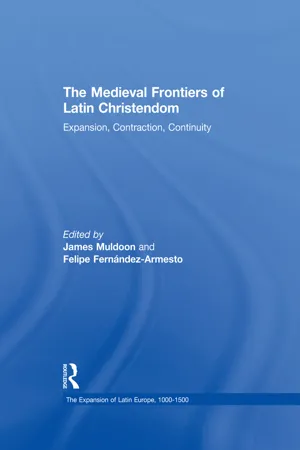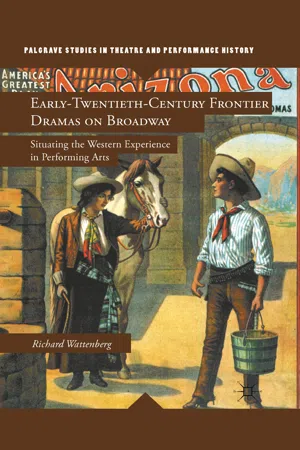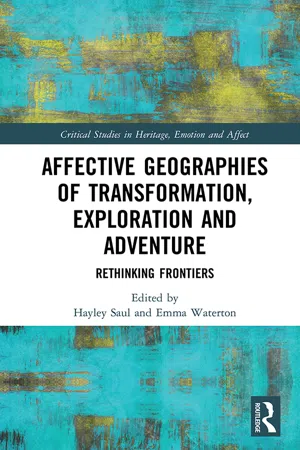History
Turner's Frontier Thesis
Turner's Frontier Thesis, proposed by historian Frederick Jackson Turner in 1893, argued that the American frontier experience shaped the nation's character and democracy. He believed that the frontier's constant availability allowed Americans to develop unique qualities such as individualism, self-reliance, and egalitarianism. Turner's thesis has been influential in shaping the understanding of American history and the concept of the frontier as a defining aspect of the nation's identity.
Written by Perlego with AI-assistance
Related key terms
1 of 5
11 Key excerpts on "Turner's Frontier Thesis"
- eBook - PDF
- Stephen McVeigh(Author)
- 2007(Publication Date)
- EUP(Publisher)
Turner’s thesis challenged head on this received version of American history, and explains why, in the immediate aftermath of the delivery of his paper, his ideas were not readily taken up. Having outlined the central contribution of the frontier to American history and character, Turner suggested that the closing of the frontier marks the end of the first chapter of American history. From this perspective, he offered his frontier thesis as both an analysis of the past and a warning for the future. The tacit question he poses is this: if the frontier, so fundamental to the develop-ment of American culture and democracy, is now gone, how then would the nation progress? ‘‘And now, four centuries from the discovery of America, at the end of a hundred years of life under the Constitution, the frontier has gone, and with its going has closed the first period of American history’’ (Turner 1996: 38). Trachtenberg, suggestive of the ways in which Turner’s history generates and authenticates myth, writes, — 24 — Theodore Roosevelt and Frederick Jackson Turner To be sure, [Turner] argued, the story of the frontier had reached its end, but the product of that experience remains. It remains in the predominant character, the traits of selfhood, with which the frontier experience has endowed Americans, that ‘‘dominant individualism’’ which now must learn to cope with novel demands. The thesis projects a national character, a type of person fit for the struggles and strategies of an urban future. (Trachtenberg 1982: 15–16) How that national type carries forward and the ways in which the frontier continued to be at the forefront of America’s conception of itself, its culture and its political landscape is the subject of subsequent chapters. Roosevelt and Turner: a Question of Influence Roosevelt was among the first to grasp the significance of Turner’s frontier thesis. - eBook - PDF
Thinking Through the Past
A Critical Thinking Approach to U.S. History, Volume 1
- John Hollitz(Author)
- 2014(Publication Date)
- Cengage Learning EMEA(Publisher)
Cengage Learning reserves the right to remove additional content at any time if subsequent rights restrictions require it. Chapter 8 Grand Theory and History: Democracy and the Frontier 174 the influence of the frontier on American society. First the frontier had to become history. In 1890, the U.S. Census Bureau announced the closing of the frontier. Three years later, a young University of Wisconsin historian named Frederick Jackson Turner read his paper called “The Significance of the Frontier in American History” at the World Columbian Exposition in Chicago. Although Turner’s “frontier thesis” was ignored at the time, after the turn of the century historians gradually began to acknowledge it. Even then, many of them were not impressed. In the nineteenth century, most historians ignored the West. They often defined history as “past politics” and emphasized the European roots of American political institutions. Turner, who grew up in rural Wisconsin a generation removed from the frontier, resented the Eastern and European slant to American history. His essay challenged that anti-Western bias and the orthodox definition of history as political narrative. Instead, Turner offered nothing less than a sweeping reassessment of the for-mation of American society. His “frontier thesis” was a grand explanation of American uniqueness from a Western perspective. Despite its chilly reception, Turner’s thesis gradually became historical orthodoxy. His argument may have challenged a conventional definition of history, but it also confirmed popular thinking. As Theodore Roosevelt noted, Turner “put into definite shape a good deal of thought that has been float-ing around rather loosely.” 1 One idea blowing in the late nineteenth-century breezes was a belief in America’s “manifest destiny” to spread American cul-ture and institutions abroad. Turner’s thesis was published just after the frontier officially closed and when nostalgia over its passing was growing. - eBook - ePub
- Gavin Cologne-Brookes, Neil Sammells, David Timms(Authors)
- 2016(Publication Date)
- Routledge(Publisher)
Like all modern myths, the ultimate function of this frontier-inspired myth-history is ideological, a means to contain the tragedies and tensions of the new order, notably imperialism, racism, monopoly and economic inequality. This containment was achieved through Turner’s integration of pioneer-hero traits into those of national character – an ‘inventive turn of mind’, ‘restless, nervous energy’, ‘coarseness and strength’ and ‘masterful grasp of material things’ – which Turner accepted were inevitably translated into the gospels of success and wealth. The Frontier Thesis thus attempted to create an ahistorical uniqueness for America which contradicted the commonly accepted notion that history is created as a process of contemporary social change. While Turner might at one level there disapprove of the robber baronage, they were, he had to admit, the transhistorical sons of the frontier, possessing its spirit and experience. It was this determining power of the frontier which constituted the second important aspect of his myth-history and which revealed the conservative nature of his theory of slow-paced social change.For Turner, the determining power of the frontier ensured American nationality and American exceptionalism. Because Turner believed in ‘the peculiar importance of American history’ as a mode of contemporary social investigation which could reveal ‘processes of social development’42 he was sure he had discovered the laws of social change in his connection of space and time in his power/knowledge equation.43That American nationality as determined by the heterotopic frontier experience was the site of cultural power-struggle is evidenced among other things in the causes of the Civil War, which for Turner was ‘a conflict between the Lake and Prairie plainsmen, on the one side, and the Gulf plainsmen, on the other, for the control of the Mississippi Valley’.44 - eBook - PDF
One West, Two Myths II
Essays on Comparison
- C.L. Higham, Robert Thacker(Authors)
- 2007(Publication Date)
- University of Calgary Press(Publisher)
The two interpretations are distinguished by a couple of significant ideas. The Turner frontier thesis is noted for its emphasis on the progressive development and 16 Douglas Francis advancement of the American West as representative of the progressive develop-ment of American society and civilization as a whole. In the oft-quoted words of Turner: “The existence of an area of free land, its continuous recession, and the advance of American settlement westward, explain American development.” 1 Although Turner’s focus was on the West – the area west of the Mississippi River, his assumption is that developments here are characteristic of developments in other regions of the country. Indeed, his argument is that the frontier began on the Atlantic coast and then systematically moved westward along with westward settlement, “civilization” meeting “the wilderness” in each successive wave of westward migration. Each time that civilization met the wilderness – that point where the frontier was reborn – America came of age. To quote Turner: American development has exhibited not merely advance along a single line, but a return to primitive conditions on a continually advancing frontier line, and a new development for that area. American social development has been continually beginning over again on the frontier. This perennial rebirth, this fluidity of American life, this expansion westward with its new opportunities, its continuous touch with the simplicity of primitive society, furnish the forces dominating American character. The true point of view in the history of this nation is not the Atlantic coast, it is the Great West…. In this advance, the frontier is the outer edge of the wave – the meeting point between savagery and civilization. 2 Turner goes on to emphasize the “purity” of America as the frontier advances: The fact is, that here is a new product that is American. At first, the fron-tier was the Atlantic coast. It was the frontier of Europe in a very real sense. - eBook - PDF
Understanding Long-Run Economic Growth
Geography, Institutions, and the Knowledge Economy
- Dora L. Costa, Naomi R. Lamoreaux, Dora L. Costa, Naomi R. Lamoreaux(Authors)
- 2011(Publication Date)
- University of Chicago Press(Publisher)
Turner (1920, pp. 259, 266) Moreover, the things that went along with democracy and helped to pro-mote it, such as social mobility, most likely also stimulated economic per-formance. Since Turner wrote it, the frontier thesis has become part of the conven-tional wisdom among historians and scholars of the United States. 2 Though the specific mechanisms that Turner favored, such as individualism, have become less prominent, arguments about the frontier have appeared in many places, particularly the literature on the democratization of the United States (Keyssar 2000; Engerman and Sokolo ff 2005). Keyssar (2000, xxi) argues, The expansion of su ff rage in the United States was generated by a num-ber of key forces and factors. . . . These include the dynamics of frontier settlement (as Frederick Jackson Turner pointed out a century ago). Those who have contested this view (see Walsh [2005] for an excellent discussion) have tended to focus on the extent to which the frontier did or did not have the postulated e ff ects within the United States. At some level the acceptance of the frontier thesis and the nature of the debate is quite surprising. This is because the existence of a frontier clearly did not distinguish the United States from the other colonies of the Ameri-cas or, indeed, other societies such as Russia, South Africa, or Australia in the nineteenth century. Every independent South American and Caribbean country, with the exception of Haiti, had a frontier in the nineteenth cen-tury. These frontiers were usually inhabited by indigenous peoples and they went through the same pattern of expansion into this zone that, as in the United States, coincided with the expropriation and oftentimes annihilation The Myth of the Frontier 51 3. Though the issue of the role of the frontier has been considered in Latin American studies (see Hennessy [1978] and Weber and Rausch [1994]), it appears that nobody has made these comparative observations before. - eBook - ePub
The Ruins of Urban Modernity
Thomas Pynchon's Against the Day
- Utku Mogultay(Author)
- 2018(Publication Date)
- Bloomsbury Academic(Publisher)
The frontier settler thus followed in the footsteps of the self-sufficient yeoman farmer, in that both were seen as morally superior to the urbanite. Undergoing a process of decivilization, the frontier settler would be “denuded of the disabling sophistications of urban culture” (Mendieta 2009: 210). Advancing into the wilderness, he would adapt to a brute environment in which lawlessness reigns, but eventually reemerge as a new man, as “an American individualist—tough, independent, resourceful, manly” (Lears 2009: 40). More than just demarcating a geographical territory, the frontier then figures as a myth ical realm, a “liminal space of both death and birth, a kenotic space in which the old self is emptied and eviscerated so that a new self can be born” (Mendieta 2009: 214). Yet, given that the 1890 United States Census had declared the end of the concept of the frontier, Turner also had to face the prospect that the future might belong to urban America. 2 In this sense, his frontier thesis must be seen as an attempt “to make sure that the American past at least was understood to be an anti-urban romance” (Conn 2014: 20). Notwithstanding that Turner’s paper has been sharply criticized for overstating the significance of frontier life and disregarding the role of cities in the development of American democracy, it remains “without question one of the most formative and influential pieces of scholarship” (Mendieta 2009: 212) in US history. 3 Moreover, the frontier thesis obviously struck a popular chord with many audiences, coinciding with the increasing “transformation of frontier history into mass-marketed entertainment and popular mythology” (Lears 2009: 40). Accordingly, frontier mythology was consolidated and perpetuated over decades in countless novels, paintings, stage performances, and movies - eBook - PDF
Dialectical Readings
Three Types of Interpretations
- Stephen N. Dunning(Author)
- 1997(Publication Date)
- Penn State University Press(Publisher)
Becker stresses that Turner's explanations of historical developments never appeal to a "universal answer," still less to "the Transcendent Idea, or any of 2. Carl L. Becker, "Frederick Jackson Turner," in Everyman His Own Historian: Essays on History and Politics (Chicago: Quadrangle Books, 1966), 191-232. 74 Dialectical Readings its many poor relations" (213, 214). History illustrates a process of social evolution that is determined not by some historical "Reason" or by class struggles but by the actions of ordinary people trying to carve out lives for themselves in ordinary ways. For Lee Benson, Frederick Jackson Turner was less a great historian than a prolific mythmaker. He rejects the entire frontier thesis on the grounds that free land had not disappeared by 1890, or even by 1900, and not many people at that time thought that it had (85). Benson proudly identifies with the tradition of scientific history so reviled by Becker. The quotations from Francis Bacon and Rene Descartes with which he opens his book both call for more progress in science. Benson even points to Ranke's dictum-that historians should "tell it like it was"-as a worthy ideal (175). As Benson sees it, Turner's Frontier Thesis was indeed the product of a universal idea, namely, the theory of free land promulgated by Marxist his- torian Achille Loria as the key to economic evolution and therefore to all historical development in the American colonies: "Clearly, the Loria-Turner thesis was economic determinist in character, despite the romantic metaphors and symbols used to state and support its propositions" (179). The attraction of the free-land concept was that it assumed a virgin beginning in America, which in turn implied that the historian could see in America a recapitu- lation of the stages of economic growth that were long past in Europe. - eBook - ePub
The Medieval Frontiers of Latin Christendom
Expansion, Contraction, Continuity
- Felipe Fernandez-Armesto, James Muldoon(Authors)
- 2017(Publication Date)
- Routledge(Publisher)
2 The American Frontier — Frontier of What?Carlton J.H. Hayes *I
IT IS now over half a century since Frederick Jackson Turner assisted in Chicago at the international celebration of the discovery of America by reading his famous paper on "The Significance of the Frontier in American History," "Almost without critical test," as Professor Paxson has remarked, the frontier hypothesis in that paper met with prompt and well-nigh unanimous acceptance by historians of the United States.1 And during succeeding years, we all know, it has inspired and been exploited in a multitude of tomes and monographs. Nowadays none of our university departments of history is complete without a frontier specialist, and no one, even a New Yorker, would essay a history of the United States, whether for the profession, the general reader, or the schools, without paying homage to the Turner hypothesis.Our historical guild should have no illusion or pessimism about its ability, in the long run, to lodge in popular consciousness practically any interpretation or reconstruction of the past upon which it may concentrate. It can certainly perceive and rejoice that its concentration for a half century on the significance of the frontier in American history has been productive not only of caviar for seminars but of common fare for journalists and radio commentators. The hypothesis has become axiomatic that our democracy and social progress and national mores have been chiefly, if unconsciously, the creation of frontiersmen, as these, in an epic sweep westward across the continent, successively wrested new free lands from the wilderness and the Indians and there, "as nowhere else in recorded history, set up institutions relatively free from coercion by either law or habit."I have neither the intention nor the competence to criticize this hypothesis. I can only bow, with respect and envy, to the numerous scholars in American history who, with extraordinary industry and enthusiasm, and in great detail, have applied and tested it during the last half century. I wonder, however, if the time has not come when our historians might profitably broaden their conception of the frontier and extend their researches and writing into a wider field. For granting that the frontier has been a major factor in the historical conditioning and development of what is distinctive in the United States, a large and now, I believe, most pertinent question remains about the American frontier. It is a frontier of what? - eBook - PDF
Guarding the Frontier
Ottoman Border Forts and Garrisons in Europe
- Mark L. Stein(Author)
- 2007(Publication Date)
- I.B. Tauris(Publisher)
Turner himself acknowledges that this emphasis on settling land is a new way of looking at frontiers. He writes, “The American frontier is sharply distinguished from the European frontier—a fortified boundary line running through dense populations. The most significant thing about the F RONTIERS AND O TTOMAN F RONTIERS 15 American frontier is that it lies at the hither edge of free land.” 4 For Turner this new type of frontier is exemplified by the expansion of colonists from large organized states into areas occupied by the less organized, often nomadic Native Americans. The frontier is no longer a boundary between states; rather, it is both a process of expansion and social transformation, and the place where that process occurs. Despite Turner’s differentiation between the American frontier and European frontiers, this basic scheme of organized states interacting with less-organized indigenous peoples is one of the most lasting legacies of the Frontier Thesis. Almost all subsequent discussions of frontiers accept this interaction as part of what defines a frontier. 5 Indeed, Turner’s ideas about the frontier, which he himself saw as only applying to America, grew to dominate discussions of all frontiers worldwide. 6 Historically, though, most frontiers did not fit this description. By far the majority of frontiers in history—and certainly the Ottoman-Habsburg frontier of the seventeenth century—were frontiers between two or more states. In recent years a number of diverse studies have added to our understanding of Eurasian frontiers. 7 It becomes clear that the more information we have about frontiers throughout history, the more difficult it becomes to develop a clear and unitary definition of the concept. Rather than propose yet another doomed overarching model, let me suggest several elements that should inform all attempts to study frontiers. Our understanding of frontiers must incorporate both the physical and social aspects of a frontier. - eBook - PDF
Early-Twentieth-Century Frontier Dramas on Broadway
Situating the Western Experience in Performing Arts
- R. Wattenberg(Author)
- 2011(Publication Date)
- Palgrave Macmillan(Publisher)
Turner’s “frontier thesis” is rooted, then, in Darwinian social evolution- ary assumptions, which present the movement from simple primitive sav- agery to complex civilization as unidirectional; however, in Turner’s view of the interaction of savagery and civilization, there is movement in both directions. He presents the meeting of civilization and savagery as a process in which civilization returns to savagery in order to cleanse itself before evolving into a new civilization. Insofar as Turner envisioned a purifying wilderness reasserting its value against the claims of civilization, his frontier thesis—and indeed late-nineteenth-century frontier discourse in general— evidences a connection with the American romantic idealization of nature. While Turner’s wilderness savagery may sometimes function as a marginal- ized, negative “other” to civilization, it functions on other occasions as the very positive center of his discourse. Even as Turner extols American history as the history of human progress in brief, his sense of the positive nature of wilderness savagery is apparent. In “The Significance of the Frontier in American History,” he writes: The United States lies like a huge page in the history of society. Line by line as we read this continental page from West to East we find the record of social evolution. It begins with the Indian and the hunter; it goes on to tell of the Frontier Western Discourse 37 disintegration of savagery by the entrance of the trader, the pathfinder of civilization . . . . 58 His choice of the word “disintegration” here, as well as a few pages later when he describes how “the disintegrating forces of civilization entered the wilderness,” 59 suggests that there was a savage wilderness “integration” that could be and was undermined by spreading civilization. - eBook - ePub
Affective Geographies of Transformation, Exploration and Adventure
Rethinking Frontiers
- Hayley Saul, Emma Waterton(Authors)
- 2018(Publication Date)
- Routledge(Publisher)
New Chronicle ’s headline – is that of a hostile and seemingly unconquerable wilderness, at once mighty and powerful, being transformed and settled, little by little, until it receded – along with the influence of Europe. It is the image of the American frontier giving way to the ‘land of opportunity’.It is this enduring conceptualization of the ‘frontier’ that came to occupy the centre of so many projects of conquest that were to follow, where the term acted as a ‘metaphor for national development in its material and ideological senses’ (Fold and Hirsch 2009: 95). While, in reality, these frontiers often were, and at times continue to be, excruciating spaces of assimilation, violence and exploitation, what has lingered – in both popular and scholarly discourse – is a notion of the frontier as that which lies at the very limits of human experience, where it effortlessly bleeds into the realms of mythology. There, ‘empty’, stubborn and inhospitable spaces are transformed into places of abundance by virtue of the strength, inquisitiveness, courage and boldness of those who seek not just to survive them but to control them.The retelling of some of the earliest voyages has left similarly heavy mythological legacies. By way of example, Patagonia (‘Patagón’), popularly translated as the ‘land of the big feet’, is a reference to an Indigenous population of giants first described in the journals of Ferdinand Magellan (Nesvet 2014). Likewise, until the eighteenth century, when recreational mountaineering took hold, popular opinion held that the European Alps were the abode of dragons (Fleming 2002). Though the details of its mythology vary between regions, in numerous accounts – from Bering, Cook, Livingstone and Amundsen to Falcon Scott and Shackleton – the frontier is sanctified as a wrathful foe in both the European and American imaginary. Pitted against this monolithic and primeval wilderness, or landscape of risk, the explorers and early settlers in such tales are elevated to the apotheosis of humanity. Commonly, the two critical, affective categories that perpetuate this frontier imaginary relate to ‘endurance’ and ‘triumph’, virtues that are commonly attached to Western, male figures. Other affective encounters, and other actors, are but backdrops or preludes to that moment of trial or victory. When Falcon Scott described how he ‘knew that poor Oates was walking to his death’ (Scott 1912) when he exited the Terra Nova Expedition tent, he made only cursory reference to the swirling blizzard of the landscape that he was entering and made no mention of the immensity of the certain, agonizing, cold death that awaited him. The nature of the experiential frontiers that the group faced were relegated to a side note, while ‘it was the act of a brave man and an English gentleman’ (Scott 1912) that captured his attention – those enduring values with which they entered Antarctica, and that he carried around like armour. Even as Scott’s own cold-weakened fingers failed him during his last few hours of life, his writing clung to the qualities with which he faced the Antarctic frontiers, ‘which has shown that Englishmen can endure hardship, help one another, and meet death with as great a fortitude as ever in the past’ (Scott 1912).
Index pages curate the most relevant extracts from our library of academic textbooks. They’ve been created using an in-house natural language model (NLM), each adding context and meaning to key research topics.
